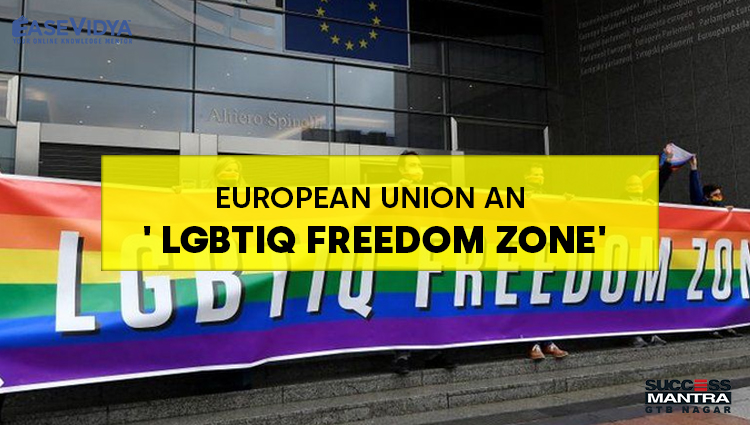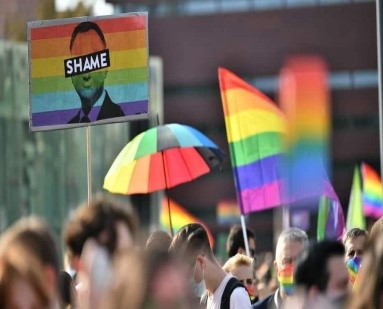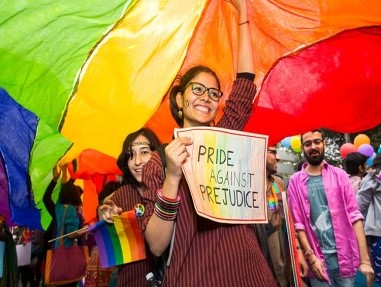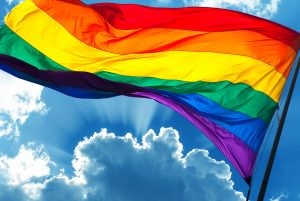
EUROPEAN UNION AN LGBTIQ FREEDOM ZONE
EUROPEAN UNION AN ' LGBTIQ FREEDOM ZONE'

Recently, in response to the backsliding of LGBTIQ rights in some EU countries, notably Poland and Hungary, the European Parliament has declared the European Union an “LGBTIQ Freedom Zone". A majority of countries in the EU (23/27) recognise same-sex unions, with 16 legally recognizing same-sex marriage. LGBTIQ stands for Lesbian, Gay, Bisexual, Transgender, Inter-sex and Queer.
BACKGROUND OF THE ISSUE

Same-sex relationships are not legally recognized in Poland, and the country already bans same-sex couples from adopting children together. However, as single people are permitted to adopt, some have managed to get around the ban by applying to adopt as single parents. Now, Poland has come up with the proposal wherein a person is liable to criminal offence if he/she is found to be applying for adoption as a single parent being in a same-sex relationship. LGBTIQ community in Poland is subject to increased discrimination and attacks, notably growing hate speech from public authorities and elected officials. Since March 2019, more than 100 Polish regions, counties and municipalities have adopted resolutions declaring themselves to be free from LGBTIQ “ideology”. Recently, the Parliament of Hungary too, adopted constitutional amendments that restrict the rights of LGBTIQ people. Hungary and Poland have been at loggerheads with the European Commission (executive body of the European Union) over an array of issues, mostly centering around abuses to the rule of law, the independence of the judiciary and the rights of minorities. The Hungarian and Poland authorities have described LGBTIQ principles of governance as “foreign” ideology.
THE EUROPEAN UNION RESOLUTION
The EU Parliament resolution declared the entire European Union as an ‘‘LGBTIQ Freedom Zone”. The resolution provides LGBTIQ persons everywhere in the EU the freedom to live and publicly show their sexual orientation and gender identity without fear of intolerance, discrimination or persecution. It further urged the authorities at all levels of governance across the EU to protect and promote equality and the fundamental rights of all, including LGBTIQ persons.
GLOBAL SCENARIO OF LGBTIQ COMMUNITY
- Ireland: Ireland legalized same-sex marriage. The country, which had decriminalized homosexuality in 1993, became the first country to allow same-sex marriage at a national level by popular vote.
- USA: US Supreme Court ruled that same-sex marriage was legal.
- Nepal: Nepal legalized homosexuality in 2007 and the new Constitution of the country gives many rights to the LGBTIQ community.
LGBT COMMUNITY IN INDIA

- Even after section 377 of IPC was removed by the Supreme Court in Navtej Singh Johar v. Union of India, 2018 case, there is a wide gap in implementing a policy for the LGBTIQ community and making a better environment for them. Right now, they are facing many issues that are underlined below.
- Family: The problem of sexual orientation and gender identity leads to fighting and family disruption. Lack of communication and misunderstanding between parents and their LGBTIQ children increases family conflict.
- Discrimination at Work Place: LGBTIQ suffers from the socio-economic inequalities in large part due to discrimination in the workplace.
- Injustice: Human rights and fundamental rights are applicable to all people, but the state has failed to create special legislation which protects the rights of LGBTIQ Minority community and to provide real justice to them.
- Health Issues: Criminalisation of homosexuality leads to discrimination and results in LGBTQ people getting poor or inadequate access to services within the health system. It also creates barriers to both the availability and the ability to access HIV prevention, testing and treatment services.
- Isolation and Drug Abuse: They gradually develop low self-esteem and low self-confidence and become isolated from friends and family. These people mostly get addicted to drugs, alcohol, and tobacco to get themselves relieved of stress and rejection and discrimination.
RELATED LEGAL DEVELOPMENTS
- Naz Foundation vs. Govt. of NCT of Delhi (2009): Delhi High Court struck off section 377, legalising consensual homosexual activities between adults.
- Suresh Kumar Koushal Case (2013): SC overturned the previous judgment by Delhi High Court (2009) arguing that "plight of sexual minorities" could not be used as an argument for deciding constitutionality of law.
- Justice K.S. Puttaswamy vs. Union of India (2017): SC ruled that Fundamental Right to Privacy is intrinsic to life and liberty and thus, comes under Article 21 of the Indian constitution. It held that “sexual orientation is an essential attribute of privacy”.
- Navtej Singh Johar vs. Union Of India (2018): Dismissed the position taken by SC in Suresh Kumar Koushal case (2013) and decriminalised homosexuality.
- Shafin Jahan v. Asokan K.M. and others (2018): The Supreme Court observed that choice of a partner is a person’s fundamental right, and it can be a same-sex partner. Transgender Persons (Protection of Rights) Bill, 2019: The Parliament has passed the Transgender Persons (Protection of Rights) Bill, 2019 which has been criticised for its poor understanding of gender and sexual identity.
- Same-sex Marriage: In February, 2021, the Central Government opposed same-sex marriage in Delhi High Court stating that a marriage in India can be recognised only if it is between a “biological man” and a “biological woman” capable of producing children.
- The LGTBQ community needs an anti-discrimination law that empowers them to build productive lives and relationships irrespective of gender identity or sexual orientation and place the onus to change on state and society and not the individual. Government bodies, especially related to Health, and Law and Order need to be sensitised to ensure that the LGBTQ community is not denied public services or harassed for their sexual orientation.
QUESTIONS (1-5)
Q.1 The EU Parliament resolution declared the entire European Union as an ‘‘LGBTIQ Freedom Zone”. Which of the following statements does not implies with it?
- It provides LGBTIQ persons everywhere in the EU the freedom to live and publicly show their sexual orientation.
- The resolution also provides for equality in Job opportunities for the LGBTIQ community: ANSWER
- It urged the authorities at all levels of governance across the EU to protect and promote equality among LGBTIQ community
- All of the above
Q.2 Consider the following statements and state which of the following is incorrect in the context of the above mentioned passage?
- Article 21 of the Constitution guarantees equality before law and this applies to all classes of citizens therby restoring ‘inclusiveness’ of LGBTQ Community: ANSWER
- LGBTIQ stands for Lesbian, Gay, Bisexual, Transgender, Inter-sex and Queer.
- Section 377 of the IPC which is related to Homosexuality was scrapped by the Landmark judgment of Navtej Singh Johar v. Union of India
- None of the above
Q.3 In which of the following landmark judgement it has been held that “sexual orientation is an essential attribute of privacy" under Article 21?
- Navtej Singh Johar v. Union of India
- Suresh Kumar Koushal Case (2013)
- Justice K.S. Puttaswamy vs. Union of India: ANSWER
- None of the above
Q.4 The Supreme Court of India has scrapped the banned same-sex relations between consenting adults in private which made many changes under which of the following sections of IPC?
- Section 377 of IPC: ANSWER
- Section 379 of IPC
- Section 392 of IPC
- Section 492 of IPC
Q.5 Which of the following statements is/are correct in the reference to the European Union resolution which is making a freedom zone in EU for LGBTIQ?
- Hungary is a country which had decriminalized homosexuality in 1993, became the first country to allow same-sex marriage at a national level by popular vote.
- Same-sex relationships are not legally recognised in Poland, and the country already bans same-sex couples from adopting children together.
- Only I follows
- Only II follows: ANSWER
- Both I & II are correct
- None is correct













0 Comment